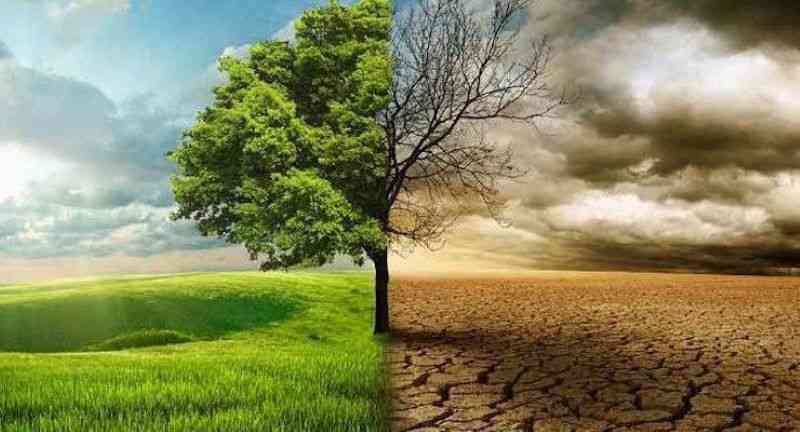
Climate change has had a significant impact on Zimbabwe’s water resources, exacerbating existing challenges and creating new ones.
The country’s water availability and quality have been severely affected, impacting both human populations and ecosystems.
One of the most visible impacts is the alteration of rainfall patterns.
A staggering 860 757 Zimbabweans lack access to safe drinking water while 17% of the households are forced to travel long distances to fetch water for their daily needs, a United Nations International Children’s Emergency Fund (Unicef) report has revealed.
According to its latest report, the decrease in rainfall due to El Niño effects is likely to exacerbate water scarcity in the country.
Zimbabwe has experienced increased variability in precipitation, leading to more frequent and intense droughts followed by heavy rainfall events.
This irregularity disrupts traditional farming practices and reduces water availability for agriculture, the country’s main economic sector.
Consequently, crop yields have declined, food security has been compromised, and rural livelihoods have been threatened.
- Irrigation panacea to droughts: Haritatos
- 60% of Zim has never known electricity
- Hunger stalks Chiredzi villagers
- Business opinion: Branding in the age of entrepreneurship and industrialisation (Part 12)
Keep Reading
Moreover, rising temperatures contribute to the accelerated evaporation of surface water bodies and water loss from soils, further depleting Zimbabwe’s water resources.
The reduced flow of rivers and shrinking of reservoirs negatively impact hydropower generation, which heavily relies on water as a source of energy.
Climate change also affects the quality of water resources in Zimbabwe.
Increased temperatures and altered precipitation patterns contribute to the proliferation of waterborne diseases, such as cholera and malaria, as well as the contamination of water sources by pollutants, including agricultural runoff and industrial waste.
Water scarcity in Zimbabwe has severe consequences, affecting agriculture, industry, and public health in significant ways.
Firstly, in terms of agriculture, the limited availability of water hampers irrigation systems, leading to reduced crop yields and food shortages.
Farmers struggle to cultivate their land, resulting in diminished agricultural productivity, crop failure, and increased vulnerability to drought.
This not only threatens food security but also contributes to economic instability and challenges the livelihoods of rural communities dependent on agriculture.
Secondly, water scarcity negatively impacts industry.
Industries such as manufacturing, mining, and energy production heavily rely on water for various processes.
Insufficient water availability disrupts production activities, leading to decreased output, job losses, and economic slowdown.
Additionally, inadequate water supply affects the quality and efficiency of sanitation and hygiene practices within industries, posing health risks to workers.
Water scarcity has detrimental effects on public health.
Limited access to clean water compromises hygiene and sanitation, increasing the risk of waterborne diseases such as cholera and dysentery.
Inadequate water supply also affects healthcare facilities, making it difficult to maintain proper sanitation standards and provide adequate care to patients.
Moreover, water scarcity forces communities to rely on unsafe water sources, leading to the consumption of contaminated water and further exacerbating health issues.
Overall, water scarcity in Zimbabwe has far-reaching consequences, impacting agriculture, industry, and public health.
Improving water management in Zimbabwe requires a comprehensive approach that includes conservation, efficient use of existing resources, and exploration of new water sources.
Water conservation: Encouraging water conservation practices is crucial. This can involve promoting awareness campaigns to educate the public about the importance of water conservation, implementing efficient irrigation techniques such as drip irrigation, and promoting the use of water-saving technologies in households and industries.
Efficient water use: Emphasising efficient water use is essential to maximize the available supply. This can be achieved through the adoption of water-efficient technologies and practices, such as the use of low-flow faucets and toilets, water recycling and reuse systems, and rainwater harvesting. Implementing water pricing mechanisms that reflect the true cost of water can also encourage efficient usage.
Infrastructure development: Investing in water infrastructure is key to improving water management. This includes the construction and maintenance of reservoirs, dams, and water treatment plants to enhance water storage and supply. Upgrading and expanding irrigation systems can also improve water distribution in agriculture, minimising losses due to inefficient conveyance.
Rainwater harvesting: Promoting rainwater harvesting techniques can provide an additional source of water. This involves capturing and storing rainwater for various uses, such as irrigation, domestic purposes, and livestock watering. Rainwater harvesting can be implemented at both individual and community levels, reducing reliance on groundwater and surface water sources.
Groundwater management: Proper management and regulation of groundwater resources are crucial. This can involve monitoring groundwater levels, implementing sustainable pumping practices, and preventing over-extraction through regulations and permits.
Encouraging the use of groundwater recharge techniques, such as artificial recharge and land management practices that promote infiltration, can also help replenish aquifers.
Water scarcity has for long been cited as one challenge the world will have to grapple with as a result of the climate change phenomenon — mostly blamed for the rising temperatures.
But while many experts had imagined it would be a while before it came to that, it would seem, owing to a plethora of factors, Zimbabwe is already in the red.
- Gary Gerald Mtombeni is a journalist based in Harare. He writes here in his own personal capacity. For feedback Email [email protected]/ call — +263778861608










